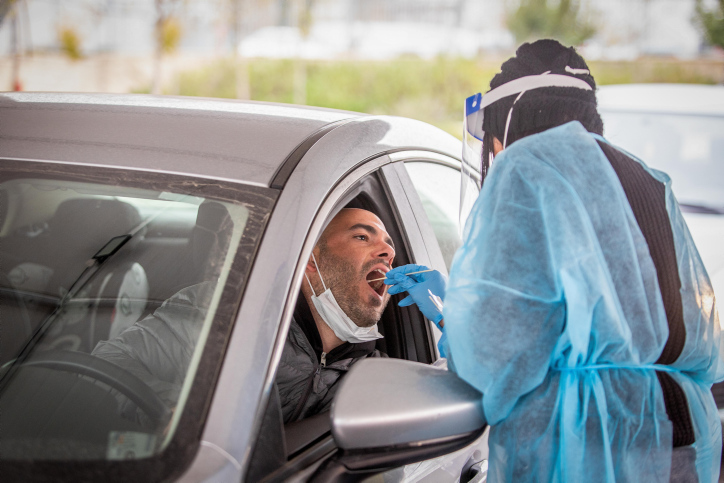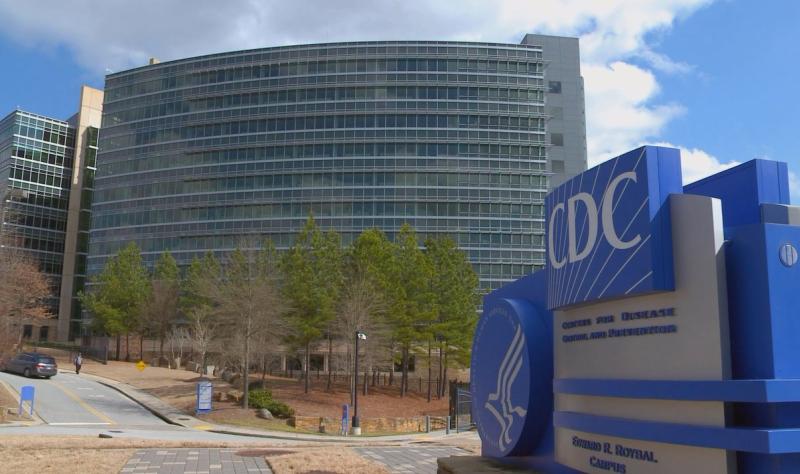Israeli long COVID study: 1 in 3 people fail to regain regular health months later

Among adults who get COVID-19, one in three fails to return to pre-infection health levels even months later, a new Israeli study suggests.
After recovery, “about 34.6 percent of participants reported not returning to their baseline health condition,” states a peer-reviewed study by researchers from Maccabi Healthcare Services, one of the country’s four health funds, based on surveys by 699 patients conducted between one and six months after recovery. On average, respondents were five months after recovery.
The study, led by Maccabi’s head of research and innovation Dr. Tal Palaton, highlighted the prevalence of symptoms including memory disturbances and muscle pain, and warned of the public health consequences of long COVID. Policymakers “should expect a significant impact of this syndrome on public health,” it said.
The research showed that symptoms were far more common among those who had felt they had the coronavirus, compared to those who had been asymptomatic. They were also more prevalent among women who caught COVID than men, and among people who are overweight or who smoke.
Maccabi conducted its survey in September 2021, two months before the Omicron strain arrived in Israel. This means that results don’t reflect possible differences in long COVID patterns following recovery from Omicron compared to previous strains.
And while the sample size is large, it only represents 7.5% of those asked to take part in the survey. In view of this, authors acknowledge the possibility of “selection bias,” meaning that as the survey was voluntary, people who have experienced symptoms may have been more motivated to answer than others.
Nevertheless, the study contributes to a growing body of literature underscoring the phenomenon of long COVID, its incidence, and — thanks to a different Israeli study published last month — its impact on wellbeing.

Illustrative image: a healthcare worker takes a COVID swab sample at a drive-through testing complex in Modi’in, on March 21, 2022. (Yossi Aloni/Flash90)
Epidemiologist Ronit Calderon-Margalit of the Hebrew University, who wasn’t involved in the study, said that despite the limitations, it is a valuable contribution on an important topic.
“I think that clinicians and healthcare personnel meet long COVID very frequently. However, the syndrome is not yet well characterized, in terms of incidence, prevalence, symptoms and prognosis,” she told The Times of Israel.
“The syndrome probably adds burden to community healthcare, and there is lack of information on how to treat it or what follow-up to have, or what could be the long-term consequences of the syndrome. We need high-quality studies to shed light on this topic.”
As the new study had a control group of some 1,398 people, it shows how much more common certain health complaints are among those who recovered from COVID than among others.
Some 37% of respondents who recovered reported memory disturbances compared to 14% of those who weren’t infected. For chest pain, the comparative figures were 20% and 12%, and for weakness they were 53% versus 33%.
Myalgia, or muscle aches and pains, were experienced by 24.7% of the non-COVID group and by 40% of the COVID group.
Addressing the significance of the findings, the authors wrote: “The impact of COVID-19 on human health is immense and evolving. This is a dynamic and constantly changing field of research and health care, with unpredictable consequences. One area of concern is the long-term health impact of SARS-CoV-2 infection. Long-COVID may significantly impact human health in years to come.”


